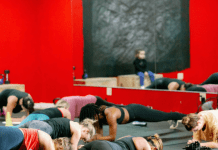As I scroll through my Facebook feed full of posts about this week’s current events, a part of my heart shutters closed again. It is a part of me that I often keep secreted away. I don’t share it with anyone. I don’t get political. I don’t ever share my stance on anything considered taboo or controversial. I’m a natural peacekeeper who won’t argue with someone even if I disagree with them – just for the sake of keeping the peace. But during this time, I would like to urge everyone to consider that someone close to them may have experienced a trauma that they haven’t shared.
Someone you may have known and loved for years may be keeping that secret part of their heart closed off – and they may be hurting or remembering something painful. Before you decide to take a stand on this issue or throw in your two cents … pretend someone close to you is hiding this trauma (because, statistically, they probably are) and then decide if it is worth sharing your thoughts.
These are big feelings. And they have big consequences.
When I was 17, I was sexually abused. For many years, I didn’t say anything. To be really honest, I didn’t even realize what had happened. It might sound hard to believe, but you have to understand the conditioning that young women go through during our formative years. When someone says “why wouldn’t she say anything?” or “how can you remember something that happened to you 25 years ago but you can’t remember last week?” – I know they haven’t experience this trauma. Or, if they have, they are closing themselves off from it.
Why don’t we say anything? Well, that’s easy. Because that isn’t what we are taught. And moreover, the witch hunt that comes along with saying something is the very reason this post is anonymous. Is it cowardice? Maybe. But does it invalidate my experience? I don’t owe it to you to tell you who I am. Because I could be your best friend. I could be your sister. Or your wife. Or girlfriend. I could be your daughter.
When I was growing up, the message was clear to me: “Boys will do X so you need to do Y.” It was like learning defensive driving – but for my body. There was no lesson to the boys. No one told them, “hey, don’t just grab a woman unless she tells you it’s OK.” Nope. Girls were told, “hey this is what guys do – so when they zig, you need to zag.” Like somehow it’s our fault that we have these traitorous bodies that make boys do things they cannot control. Therefore, when something happens, the blame lies with us. We didn’t do our part – we didn’t stop them.
So why didn’t I say anything? I didn’t think I could. Wasn’t this exactly what they told me would happen? This is what boys do – and I didn’t know how to stop it. I pretended to be asleep – it still didn’t stop. I was 17. I didn’t know any better. I wanted to stop it – but I didn’t know how.
Is it still my fault?
It’s been nearly 20 years. I can’t remember what I had for dinner two nights ago – but you know what I do remember? I remember every detail of the apartment where it happened. I remember the vertical blinds and how one was broken in half. I remember the scratchy sofa. I remember the panic of not knowing what to do. I remember his unwanted hands. I remember feeling numb and outside of my body. I remember feeling terrible after and shoving down the experience – I didn’t want to remember. But I can’t help it.
Did I feel like a victim? No. I thought it was my fault. For many years, I didn’t even think about it until I was in therapy and my therapist continually asked if I had been sexually abused because of my reactions / thoughts on things. Finally, I told her what happened and asked if that counted.
As if there is some tally system where you have to be “abused enough” for it to matter. Even 20 years later, I was still invalidating what had happened.
Does that sound crazy to you? Because I can promise my experience is not unique. Consent starts at home – and at an early age. I look forward to a time when we can talk openly about what consent means without people getting defensive. No one is being abused at you. In fact, none of this is about you – or me. It’s not about our personal experiences.
It’s about the actions we take when someone finally says, “this happened to me – what are you going to do about it?”


















